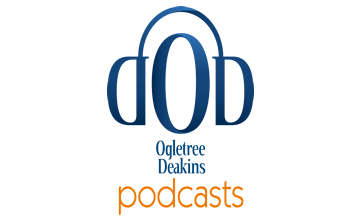Podcast: Play in new window | Download (Duration: 18:47 — 25.8MB) | Embed
Subscribe: Apple Podcasts | Spotify | TuneIn | More
In this podcast recorded at our recent Corporate Labor and Employment Counsel Exclusive® seminar, Dee Anna Hays (shareholder, Tampa) and Sarah Kuehnel (shareholder, Tampa/St. Louis) discuss the increasingly complex challenge of complying with a multitude of varying state laws in an era of significant changes in federal policies. Sarah and Dee Anna (who is co-chair of the firm’s Multistate Advice and Counseling Practice Group) explore the implications of key federal changes on state-level regulations and the heightened need for employers to adapt to various state laws on issues like wage and hour requirements, mandatory leave programs, noncompete agreements, workplace safety issues, and anti-discrimination protections. They also will discuss time-saving methods in-house counsel can employ to maintain and monitor compliance, including leveraging technology and automation to promote consistency across multistate operations.
